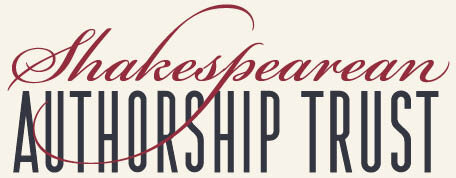William Shakspere
Dates:
1564 – 1616
Dates
26th April 1564: “Gulielmus filius Johannes Shakspere” (William son of John Shakspere) entered into the baptismal register of the Holy Trinity parish church, Stratford-upon-Avon.
25th April, 1616: The burial of “Will Shakspeare gent” is recorded in the Stratford parish register.
Education
Unknown. It is assumed he attended the local grammar school, though no records exist to substantiate this. His name does not appear in any university records of the time.
Marriage
27th November 1582: an entry in the Bishop of Worcester's Register recorded the grant of a marriage license to “wm Shaxpere et Anna whateley of Temple Grafton.”
28th November 1582: an entry in the Bishop of Worcester's Register records the marriage of “willm Shagspere . . . and Anne hathwey of Stratford.”
The latter refers to the man who has passed down to us as the great writer. The births of his children are recorded in Stratford in 1583 and twins in 1585.
London
In 1592 Shakspere seems to have been known as an actor in London. How he came to be in London and how he became an actor are unknown. No records exist which explain this transformation. By 1596, it appears he was also something of an entrepreneur. He invested much of his earnings in buying property and land in his hometown. In 1598, plays began appearing under his name. In 1599, he became part-owner of the Globe Theatre. It is believed he retired to Stratford sometime between 1610 and 1613 (again, no evidence exists to substantiate this).
The Case
William Shakspere is the conventional candidate. Many plays appeared under the name of “William Shakespeare,” “William Shake-speare,” or “Shakespere” from 1598, culminating in the collected works (the First Folio) in 1623, seven years after his death. Ben Jonson (among others) celebrates '“the author William Shakespeare” in the preface of this text, and the following poems link the author with the Shakespeare Memorial in Holy Trinity Church, Stratford-upon-Avon. Many plays contained in this collection had not been heard of before or had not been attributed to Shakespeare previously. Many of these plays were written between 1592 and 1598 and had appeared anonymously when first published. In 1598, Francis Meres, in Palladis Tamia, Wits Treasury, refers to Shakespeare as a playwright excellent “for Comedy, witness his Gentlemen of Verona, his Errors, his Love['s] Labours Lost, his Love Labours Won, his Midsummer Night’s Dream, and his Merchant of Venice; for Tragedy his Richard the 2, Richard the 3, Henry the 4, King John, Titus Andronicus, and Romeo and Juliet.”
Links for further information
Shakespeare Authorship Roundtable
Shakespeare Authorship Page, dedicated to the proposition that Shakespeare wrote Shakespeare
Shakespeare Birthplace Trust in Stratford-upon-Avon
Books for further information
The Genius of Shakespeare, by Jonathan Bate, 1998
Will in the World: How Shakespeare Became Shakespeare, by Stephen Greenblatt, 2005
1599: A Year in the Life of William Shakespeare, by James Shapiro, 2006
Shakespeare and Co.: Christopher Marlowe, Thomas Dekker, Ben Jonson, Thomas Middleton, John Fletcher and the Other Players in His Story, by Stanley Wells and Allen Lane, 2006

